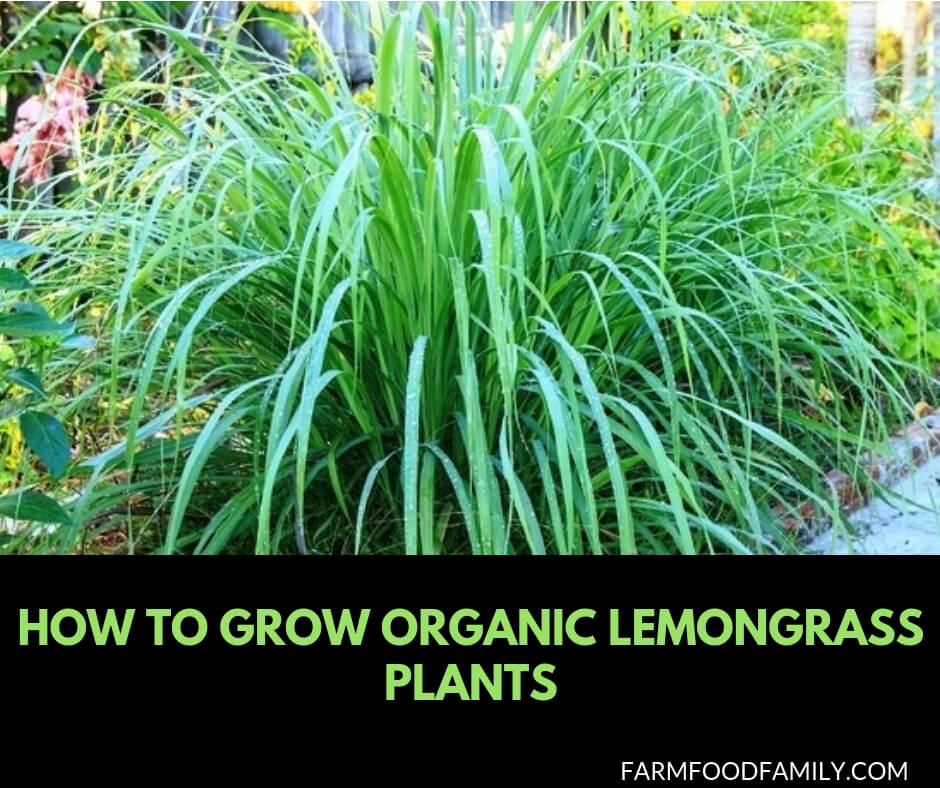Have you ever wondered about the secrets behind growing lush, aromaticLemongrass Plantsin your garden?
But, why stress the need for growing it organically?
Join us as we delve into the green world of organic gardening, guaranteeing you a fruitful journey ahead.

It looks like tall grass, but it has a strong lemon smell.
There are different kinds of lemongrass, each with its own special traits.
Growing lemongrass without using chemicals is a smart move.

It makes sure the plant stays healthy and safe to use in your food or drink.
Lets dive deeper into what makes lemongrass special.
It has long, thin leaves that look a bit like the grass in your yard but much taller.

This plant is famous for its lemony scent, which comes from the oils in its leaves.
People enjoy using it in their cooking for that fresh, citrus flavor it adds.
Chemicals can harm the soil and water, but organic gardening keeps them safe.

Growing lemongrass in your garden is not only easy but also rewarding.
So, give it a try and see how this amazing plant can transform your cooking and your garden.
Lets break down these steps to help you get started on the right foot.

The plant will thrive best in areas that receive at least six hours of direct sunlight each day.
it’s possible for you to improve your soil by adding organic matter like compost or well-rotted manure.
This not only boosts the nutrient content but also improves soil structure, helping with water retention and drainage.
This gives the plant plenty of time to establish itself and grow throughout the warmer months.
Starting your lemongrass garden requires some planning, but its not complicated.
Planting Lemongrass
Getting lemongrass into the ground correctly sets the foundation for a healthy, vibrant plant.
Step-by-step Guide to Planting Lemongrass Seeds
Planting lemongrass seeds requires patience and attention to detail.
They provide nutrients, improve soil structure, and help retain moisture.
Proper care involveswateringcorrectly,mulchingto control weeds and retain moisture, and keeping an eye out forpests and diseases.
Doing these steps right helps ensure your lemongrass not only survives but thrives.
Since organic means that no chemical pesticide solutions are used, controlling pests must be done through other measures.
The only pop in of pest that sometimes causes problems is the spider mite.
Epsom salts and crushed egg shells are cottage garden ingredients forhealthy plants.
The use of organic remedies like these help improve plant health and groundwater.
Each of these practices supports the plant in different but complementary ways, leading to a robust lemongrass plant.
Natural Fertilization Techniques
Feeding your lemongrass naturally encourages strong growth without the need for chemical fertilizers.
Addressing Common Growing Issues
Sometimes, lemongrass plants might not grow as expected.
Remember, providing your lemongrass with enough sunlight, water, and organic nutrients will help it thrive.
I encourage you to try growing lemongrass organically.
Its not just an addition to your garden but a step towards a more sustainable way of living.
The benefits of organic gardening go beyond just the produce you harvest.
Its about nurturing the land, preserving biodiversity, and contributing to a healthier planet.
So, why not give it a go?
Your garden and the environment will thank you.
It usually takes about 10-14 days for lemongrass seeds to germinate.
However, reaching maturity and being ready for harvest can take several months.
For quicker results, consider starting with stalks or cuttings.
Can I grow lemongrass in pots?
Yes, lemongrass grows well in pots.
Choose a pot that is at least 12 inches deep and wide to accommodate the root growth.
Ensure it has good drainage holes.
Potted lemongrass is ideal for balconies or patios.
How often should I water my lemongrass plants?
Water your lemongrass when the top inch of soil becomes dry.
The plant enjoys consistent moisture but doesnt like to be waterlogged.
In hot, dry weather, you may need to water more frequently.
Do I need to use organic fertilizer for my lemongrass?
While lemongrass will benefit from organic fertilization, its not strictly necessary for growth.
What pests should I watch out for when growing lemongrass?
Common pests include aphids and spider mites.
Organic solutions like neem oil or simply spraying with water can help manage these pests.
Lemongrass is also known for its pest-repelling properties, making it a beneficial plant in any garden.